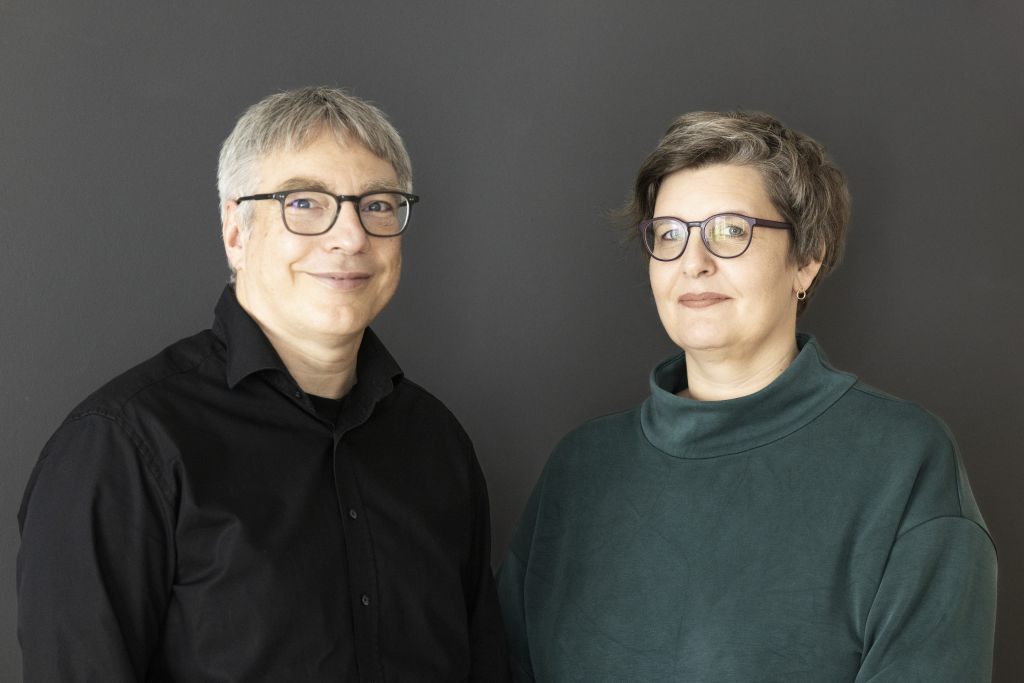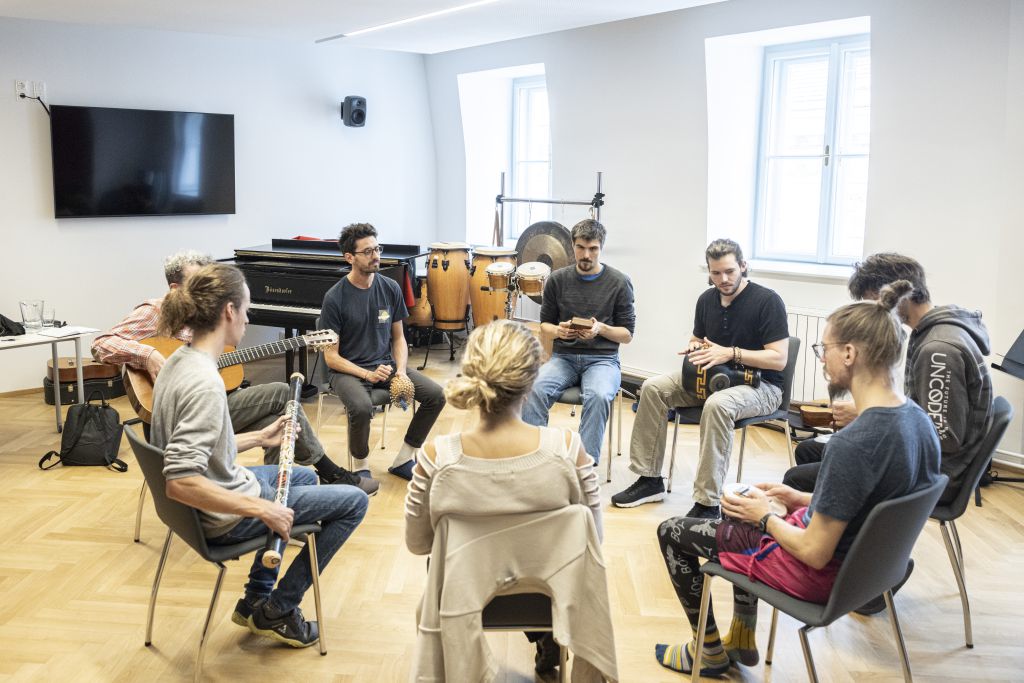This summer semester, the first students are commencing their studies under the new Master of Arts in Music Therapy curriculum. This master’s degree programme joins the Bachelor of Arts in Music Therapy (launched in 2020) to complete the step-by-step replacement of the old music therapy diploma programme with a new BA/MA structure—a transition that represents an important and historic step in the development of Viennese music therapy training, which has been based at the mdw since 1959 as Europe’s oldest academic music therapy training programme.

In order to fulfil the existing legal requirements with respect to academic study as well as to the health profession of music therapist as such, which has been anchored in Austrian law since 2009, Austrian MA programmes in music therapy are conceived in a consecutive manner and can thus only be pursued following completion of a music therapy bachelor’s degree programme (or a comparable course of music therapy training) and consequent attainment of the qualification to practice with joint responsibility. MA programmes then provide qualification to work autonomously and hence in a self-employed capacity, such as in private practice.
I study music therapy because it allows me to get to know music in a new light—not primarily as an art form but as a means by which to help, to heal, and to gain self-knowledge. I find that extremely fascinating.
A Department of Music Therapy student
The orientation of the “Viennese School of Music Therapy”, which is rooted in humanism and depth psychology, becomes evident in the significance that it accords to music-therapeutic self-experience, in its understanding of psychodynamic processes, and in how the therapeutic relationship is built—with elements such as free improvisation playing an important role. The MA programme covers these central elements in greater theoretical and practical depth and compliments them by additional approaches from areas such as systemic and family therapy as well as with physical therapy-derived working methods. Students also develop artistically thanks to activities such as ensemble-based improvisation, which sees them join forces to develop and present a “Workshop Concert”.

In the first year of study, students build out practical skills relevant to music therapy with adults receiving psychiatric or psychosomatic treatment—and on top of its compulsory internship, the MA programme opens up numerous opportunities to custom-tailor one’s studies: the ability to freely combine two specialisations permits the attainment of greater flexibility as well as more tightly focused profiles in students’ areas of special interest. Self-chosen thematic frameworks (such as music therapy and medicine, music therapy in a triadic setting, or music therapy in the context of culture and society) help to link theory and practice, which are then ideally lent further academic depth in the master’s degree thesis. This structure also makes it possible to combine ongoing professional work as a music therapist with one’s studies or explore new areas through opportunities such as artistic and therapeutic projects.

In order to ensure that this diverse content drawn from music therapy, music, psychology, medicine, and other fields is competently conveyed, an interdisciplinary faculty teaches students and provides them with onsite internship supervision. What’s more, the department’s own infrastructure at the WZMF – Music Therapy Research Centre Vienna provides opportunities to participate in research projects—work that can also be continued later on as part of mdw-based doctoral (PhD) studies.
What I particularly like about this music therapy programme is its great breadth. Where else do you have the privilege of being able to obtain this mixture of musical and scientific training and self-experience?
A Department of Music Therapy student
The mdw’s music therapy programme is currently celebrating 65 years of existence—and particularly in times such as these, with various ongoing polycrises, the socio-political significance of artistic media is clear to see. Music’s potential to promote health and build resilience is scientifically proven, and our training of music therapists therefore seeks to convey evidence-based content such that our students will ultimately be able to employ their knowledge and skills to the benefit of their patients in their future work as music therapy professionals.

